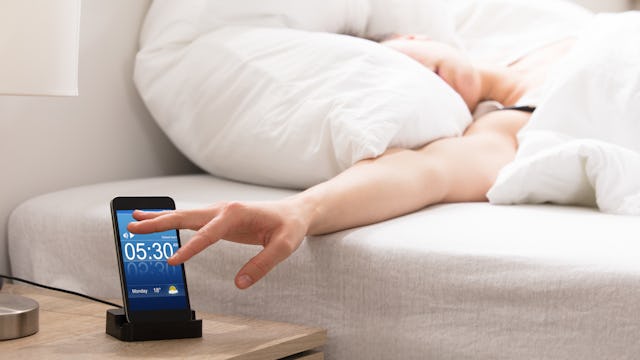This Is Why The End Of Daylight Saving Time Makes Us Feel Like Sh*t

Longer nights and shorter days can make many of us feel depressed
Today marks the end of daylight savings time, which means parents all over the U.S. are collectively dragging their asses around today because we’ve been awake since the crack of dawn.
Turns out, there’s a scientific explanation as to why the time change affects our mood and health — and it goes beyond circadian rhythm.
Sure, there are many people who love the extra hour of sleep (for those who actually get an extra hour, anyway — lucky bastards). But for others, the shorter days and longer nights mean that symptoms of seasonal affective disorder can be exacerbated.
Approximately half a million Americans suffer from seasonal affective disorder (SAD), while another 10-20 percent suffer from a milder form of “seasonal blues,” according to the Cleveland Clinic.
CBS News is reporting that while the cause of SAD is unknown, recent research has found clues in our biology.
“The lack of light can impact our biological functioning,” says Louisa Sylvia, Ph.D., director of psychology at Massachusetts General Hospital Bipolar Clinic and Research Program. “We’re not making as much melatonin as usual, which helps with our hormone functioning and as a result, it can lead to symptoms of depression such as fatigue, loss of interest in things, and lack of motivation, and it can snowball into a full-on depressive episode.”
Many people experience symptoms of depression for most of the day, nearly every day of the late fall/winter. Low energy, losing interest in activities, trouble sleeping, changes in appetite and weight, difficulty concentrating and social withdrawal are also symptoms of SAD. Women are diagnosed at a much higher rate than men — nearly four times as many women report suffering from the condition.
See? Daylight savings time affects more than just a night or two of our circadian rhythm and sleep patterns. Personally, I can check off two or three of the above symptoms myself and it’s only early November.
So what can we do to combat the effects of these short days and long nights? “Ask for vitamin D, B12 and iron levels, and get your thyroid levels checked,” Dr. Vatsal Thakkar, a clinical assistant professor of psychiatry at the NYU School of Medicine, suggests to CBS News. “If these are too low they may be bringing you down.”
Other recommendations include experiencing as much daylight as possible, staying active, and limiting sugary foods (stabilized blood sugar means better moods). If you still find yourself struggling — and we all do — don’t be afraid to talk to a professional about what treatment might work best for you.